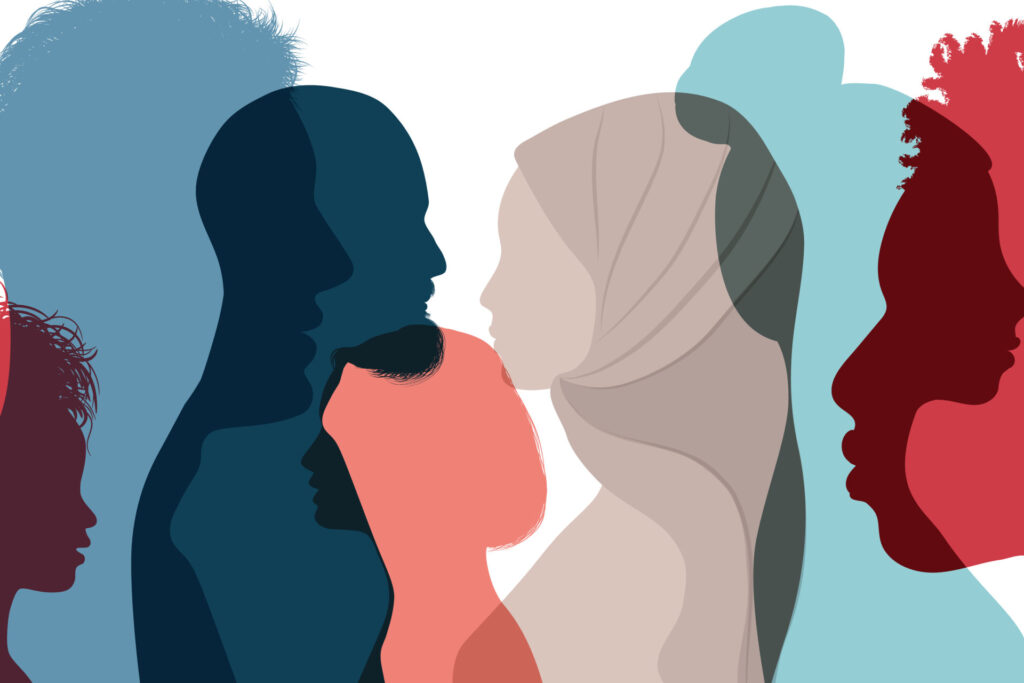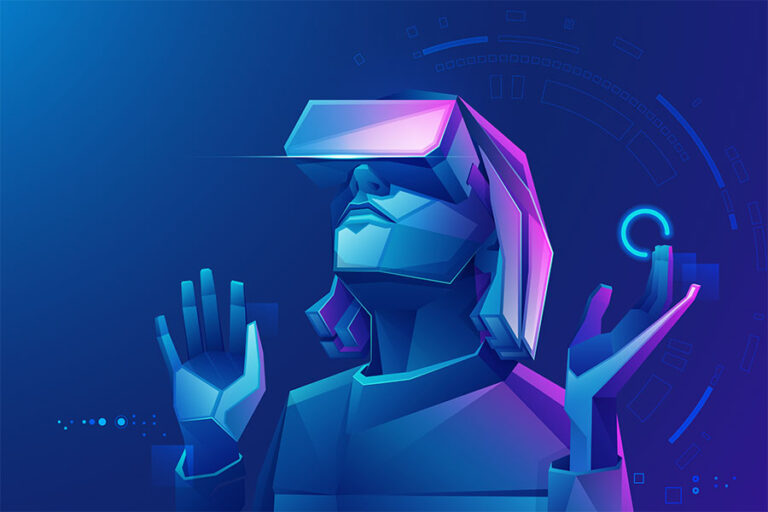
“I’ve got a really good, but often very frustrating brain.” This is how Sarah Francis, Senior Product Manager at YouGov opens her workshop at the Women in Silicon Roundabout Conference. Francis has recently joined YouGov after working for a decade in senior product roles across hospitality, housing, social care, leisure and fitness. She is responsible for the teams that build engaging and rewarding experiences for YouGov’s 15 million panellists in 55 different countries. And she’s also living proof that neurodiversity is a net positive for any organisation.
According to the CDC, in the US, one in seven people is neurodiverse, meaning that they have variations in their brain function. Despite this fact, neurodiverse people still face an unemployment rate of around 85%. Only 7% of the companies surveyed by Universum EB Now in 2020 said they had a neurodiversity plan in place and the National Autism Indicators Report by Drexel University reported that currently, only one in six autistic adults is in full-time employment, with less than 16% of survey participants having full-time paid work.
Neurodiversity is not a lack. The more diverse a team is, the better the final product it will produce. About 35% of the neurodivergent population have extremely high creativity, complex problem-solving skills, data and technology acumen, aptitude, and interest, according to an EY report. However, for many neurodivergent people, finding roles where they can be their authentic selves, and thrive can be challenging, and Francis (pictured below) was no exception.

“We’re in a global competition for talent,” she tells Digital Bulletin. “We are desperate to recruit people, we want the best and the brightest minds. Neurodivergent people could be the talent that you want and need in your business. But it isn’t all sunshine and roses. It’s really hard sometimes. I’ve previously described my brain in a neurotypical world as being like a square peg in a round hole. My boss at the time described the business as having a ‘Sarah-shaped-hole’ in it that I was filling. About six months later, I had to leave that role because I didn’t gel with the team”
“The world is built by and for the norm. It’s a bell curve, and we are on the edges. That’s okay. Of course, the world can’t be recreated around a minority. But that doesn’t mean that small changes can’t make a big difference.”
Francis has ADHD, and although that has not stopped her from having a very successful career in the tech industry, it does come with challenges. She gets bored easily when the work is routine and becomes frustrated when change and pace is slow. On the flip side, if the work is compelling, she can become hyperfocused – with a “forensic” eye for detail and a relentless commitment to delivery – which results in her working many late nights and frequently forgetting to eat. Her brain’s way of working also allows her to understand the world in a different way.
“In my case, I join the dots really fast, which is great if you want your lots joined; if you don’t want that,, or you’re happy with the status quo, it can be annoying,” she explains. “And by that I mean I understand quickly how a company operates or how a strategy, a meeting, a project is likely to play out, because I’ve been through them over and over in my mind.”
“I’ve been described as passionate and articulate, which is great. But the flip side of that in the past has been unpredictable emotional outbursts that leave everyone feeling uncomfortable, especially me. I’m getting better at managing that now, but emotional regulation is still a huge challenge that I’m working on every day.”
We're in a global competition for talent. These guys could be the people that you want and need in your business
When she talks about her struggles, Francis is incredibly honest and self-aware, as she narrates how difficult it was for her to get a diagnosis and how her anxiety masked for years her ADHD, when it was just a symptom of it. However, Francis has come a long way since then, and she has learned what to look for in a workplace. For example, she resigned within weeks from a previous role when she realised the culture and management style of the business wasn’t a good fit.
“I have learned to ask the right questions in interviews, which in that case, I didn’t,” she says. “And I can tell within a week or so of joining a company, whether it’s for me.”
In YouGov, Francis has found an inclusive culture and a manager with a leadership style that works well for her and where she is comfortable sharing how the business can get the best out of her. In her case, she explains that she needs structure – clear tasks and deadlines – but also a flexible schedule, where she is judged by the work done and outcomes achieved, and not the times or hours that she spends at her desk. In fact, since a lot of people on her team are in the US, she has moved her working schedule to be more in line with their work hours which also helps her personally.
Inclusion Helps Everyone
“I’m senior enough now to have carved out a way of working that works for me,” Francis says. “I can advocate for myself well. But not everyone can. And that’s why it’s so important that I use my voice to help create an environment where people with these challenges can speak before they hit burnout. Inclusion helps everyone. A culture of flexibility about working hours and focus on results also helps mums who need to go and drop the kids off at school or dads who need to pick them up”
Simple changes can go a long way in ensuring that a workplace is inclusive to both neurodivergent and neurotypical people. Moreover, by implementing company-wide policies such as flexible working, companies can support all their employees.
From parents to introverts, the COVID-19 pandemic and remote work have transformed people’s relationships with their workplace. But Francis is adamant about making sure that things don’t go back to the way they were before, where working from nine to five is the expectation and “anything outside that a privilege.”
Another thing that Francis stresses as essential is openness. Her company, YouGov, recently marked Mental Health Week, where members of the organisation shared their stories of struggling with different aspects of mental health, from postnatal depression to anxiety and childhood trauma, that she found extremely valuable.
I'd like to see companies promote and support leaders who embrace inclusion, and not just to tick a box
“It demonstrated that we are a bunch of slightly broken people that come together and work together, building relationships with each other. Everyone is facing challenges you can’t always see.” Francis says. “I find that being open about this stuff helps. But it’s hard to start these conversations and knowing that you’ve got a supportive boss or a colleague that cares and wants to listen to you makes a massive difference.
“If we can be a little bit more understanding, and a little bit kinder, it makes everybody’s life better. We’re not talking about sweeping giant changes here. There are small cultural things that can make a difference.”
Rather than waiting for someone to request a change, she advocates for company leaders to start introducing these policies and changing their culture to attract and retain more diverse people.
“I do think teams do their best work when they feel empowered,” she says. “But if your culture isn’t inclusive you’re not going to attract the people that you want. There’s a lot of emphasis right now on racial and gender diversity, and that’s so important. The way people think, behave and learn isn’t quite so visible, but it still leads to an important diversity in the conversation.”
Prejudice can often hide great talent. Francis talks about a former colleague, James, who is on the autism spectrum. “He had huge nervous energy; he was constantly pacing up and down during his interview.” However, she describes him as “one of the best research minds I’ve ever worked with”.
Another former colleague, Peter, who has ADHD, was perceived as uncooperative and difficult to manage. However, once he was freed to lead and empower his team using his unique combination of strengths, he was brilliant at it and his team became the highest performing engineering team. A third, Joanne, who also had ADHD, was often late and had a chaotic organisational style that more structured types found challenging. However, she had a talent for understanding other people and was able to take her department through a huge transformation and cost-optimisation project without losing a single person.
When you truly recognise diversity, you not only get happier employees but you see the improved commercial performance that comes from having divergent thinkers
Small changes, such as recognising one’s own biases during interviews or offering small accommodations, can go a long way in helping people feel welcomed in their workplace and reach their full potential. However, Francis stresses that these must be real policies and not just words that companies use to promote themselves.
“It’s not a bunch of values on your website. It’s who you promote, why you promote them, how you reward them, and how much you publicly recognise them,” she says.
In a field where both being a woman and being neurodiverse are far from the norm, Francis feels lucky to be able to advocate for her colleagues and help create environments that are both diverse and inclusive. However, she admits that the diversity agenda is something that can be often surface-level, or an add-on to someone’s job, typically a woman’s. Although there has been a trend in recent years towards promoting diversity, she is aware that there is still a lot of work to be done in the path towards recognising the true value of these individuals.
“I’d like to see more companies promote and support leaders who embrace inclusion, and not just do it to tick a box,” she says. “When you truly recognise diversity, you not only get happier employees but you see the improved commercial performance that comes from having divergent thinkers and a diverse range of voices on your teams. And when leaders create that kind of culture and environment, they should be rewarded. We can’t make it yet another unpaid piece of work that (usually) women do; something that’s valuable to the business but isn’t rewarded.
“It should be part of every manager’s job to be inclusive. There should be a recognition that it’s not just soft and fluffy.. There are some cold, hard commercial reasons why this is a good idea. Let’s celebrate those as well.”


